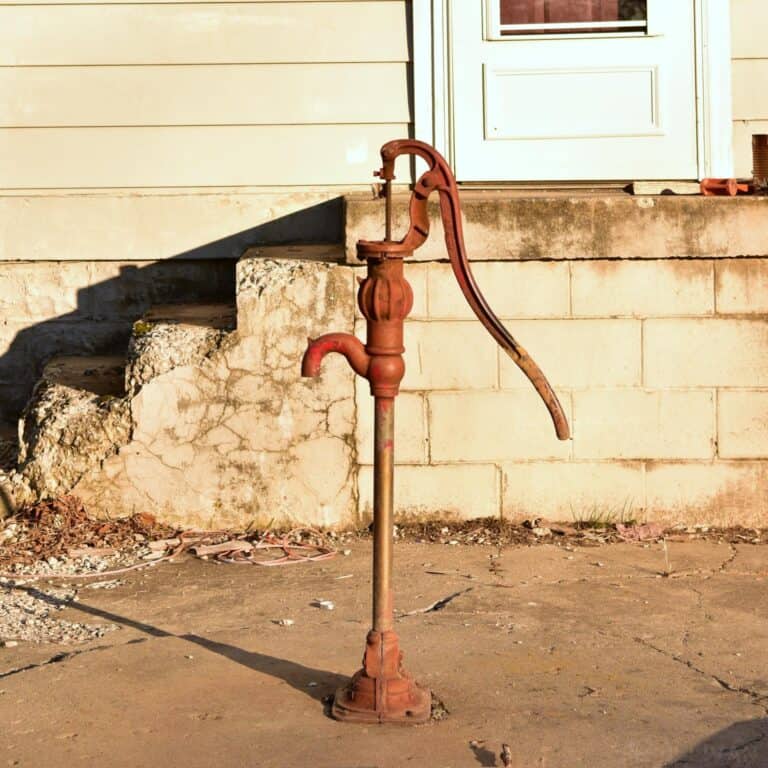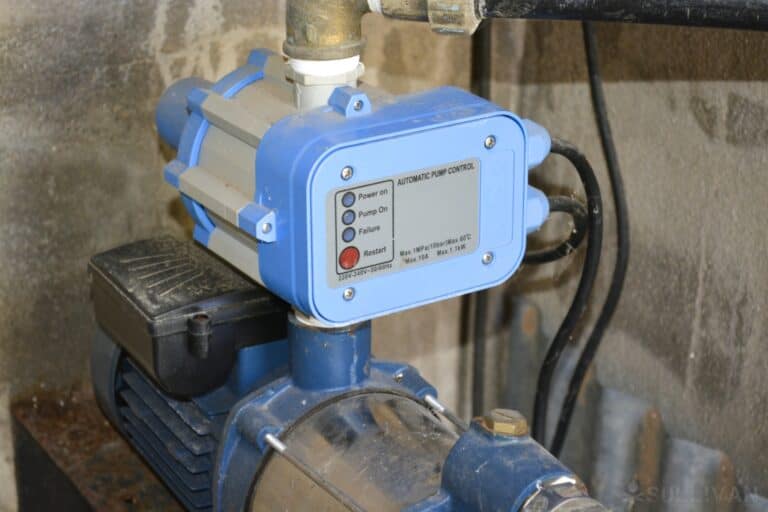One of the most common emergencies we will have to deal with in life is a power outage. Caused by weather, accidents, natural disasters, and good old-fashioned human error, America’s increasingly old and fragile electrical grid has been putting up a record number of brownouts and blackouts in recent decades. That’s not a good sign.

If you aren’t ready yet, it is way past time to start putting your blackout preparation plans into play. As always, one of the most important resources during any kind of emergency is water. Will your water still work during a power outage?
Yes, in some cases. If you have public water that’s fed by a tower, it will continue to flow as long as that supply lasts. If you have a well, you won’t have water because the pump will be offline. Having a generator to power a well pump is a good backup plan.
That’s the short version of the answer, but the long version is actually a lot more complicated and nuanced.
Depending on whether you live ,in a house or apartment, what floor you live on in a multi-family building, and a host of other factors, you’ll be able to depend on your usual water supply more or less during a power outage. This is definitely need-to-know info, and I’ll tell you all about it below…
Public Water Fed From Tanks Will Work Normally While Supply Lasts
Have you ever seen those huge water towers driving around your town or county? If you have, assuming you were on public water, you can rest assured you will have your taps at home function normally at least for a time after the power goes out.
That’s because this water supply is gravity-fed and does not need power to establish pressure and distribute the water to each of the homes in the service area.
But, without power, there is no way to pump water up into the tower for continual replenishment, so the timer will definitely be started when it comes to the tower’s, and accordingly your, water supply going dry.
The good news is this does buy you some time if you were caught flat-footed; you’ll be able to gather up containers or deploy your bathtub basin and fill them up before there is no more water to be had.
Ongoing Outages Means Public Water Supply Can Be Compromised
Something to keep in mind is that even if your local water towers have plenty of water, the rest of the infrastructure and the supply pipeline are totally dependent on electricity.
Pumping, filtration, treatment, and more all depend on power, and not all municipalities have enough backup generators or alternate capability to accomplish these objectives in the case of a widespread outage.
What this means is that, even if there’s a partial continuation of normal function, you shouldn’t expect a free, uninterrupted, and unlimited supply going forward until the major problem is resolved.
Worse yet, water filtration and treatment plants might be operating at reduced or even no capacity, meaning what water you’re able to get could require filtration, boiling, and other treatment before it is considered potable.
Even if you are lucky enough to live in a place where the water supply is hardened against a typical power outage, it’s a great idea to keep your own provisions for storing and treating water so you can take care of it yourself.
Private Well Water Will Be Inaccessible Without a Generator
If you rely on well water, you’ll really be in a pickle during a power outage unless you have a generator: your well pump will be offline!
This is a major weak spot in your overall readiness. Having a well is great, especially if your water source is unlikely to be contaminated by any means, but you must have the capability to power it.
At the very least, consider a backup battery bank that can give you a few hours of power on the pump – enough for you to top off your water supply on hand.
But if you really want to go old-school, set up a bucket tied to a metal chain that you can take down and fill with water. Then you’ll have it no matter what! This does assume the well opening is wide enough, though…
If Your Home Requires Pressure Tanks, You Will Have Water While Pressure Lasts
Another wrinkle to consider in the water supply problem is whether or not your home relies on any pressure tanks. If it does, again, they will stop being filled if you lose power because the pumps won’t be operational.
That said, you will still be able to get a little bit of water out of the faucet because the tanks will be topped off and you’ll have water pressure, though this will steadily diminish as you draw water.

Multistory Buildings and Apartment Complexes Won’t Have Water Unless Pumps are Powered
If you live in an apartment complex, especially a multi-story building, you’re going to run out of water quickly during a power outage because the pump that sends water to each of the individual units is likewise going to go offline. And, unfortunately, most of these complexes do not have dedicated backup generators.
Even if they do, these large and powerful pumping systems have high demands for electricity, and most generators that aren’t purpose-designed simply cannot run them.
This is why it is even more important for you to have an alternate method for sourcing water if you live in an apartment. Consider window or balcony rain catchers or just keep a good supply of potable water on hand using large cans or multiple jugs.
Will Toilets Still Flush Normally When the Power is Out?
Probably yes, but there is a possibility that they might not. Essentially, if you are on public water, not in an apartment complex, not flushing in a basement or other subterranean fixture, and don’t rely on a sewage pump, you can flush normally.
That’s because sewage and waste pipes are typically gravity-fed also, be they sewer or septic.
However, if your house or building needs a sewage pump or any other kind of pressurizing in order to function, you’ll be able to flush normally for a little while, but soon all of that sewage will back up and can potentially contaminate other pipes in your house or, hideously, overflow!
You’ll definitely want to understand exactly how your sewage system is set up in your home or building before you go on flushing as normal during a power outage!
Will You Still Have Hot Water When the Power is Out?
It depends on your hot water heater. If you have a traditional electric hot water heater, the only hot water you’ve got is what is left in the tank. They won’t operate without power, obviously, and they are so power-hungry that running them with a generator is typically not feasible. A gas-powered hot water heater might continue to function normally.
However, if you have a tankless hot water heater, you’ll be out of luck until the power comes back on. And since there is no hot water stored in the system because it heats it on demand, that means no more hot water unless you warm it yourself some other way!

Tom Marlowe practically grew up with a gun in his hand, and has held all kinds of jobs in the gun industry: range safety, sales, instruction and consulting, Tom has the experience to help civilian shooters figure out what will work best for them.

If you have an artesian well, power may not be necessary. I’ve lived in a house with an artesian well in Florida. When the power to the pump was out, we didn’t get our customary water pressure of course, but by running a hose off the well head, we could get about 2.5 gallons per minute. More than enough to get water to filter for drinking and cooking, and easily enough to fill buckets to flush toilets (we also had a septic system). Not all artesian wells have the water pressure we enjoyed, some were higher, many were lower. We still ensured we had potable water stored in case the artesian well pressure dropped too low for a satisfactory supply.
if you have a well you can remove the pump and suction line. If you have a 2″ casing you can drop a 1″ pipe with a check valve on the end of it down the casing. Use the pipe like a bucket. Not much water at a time but enough to get a drink.